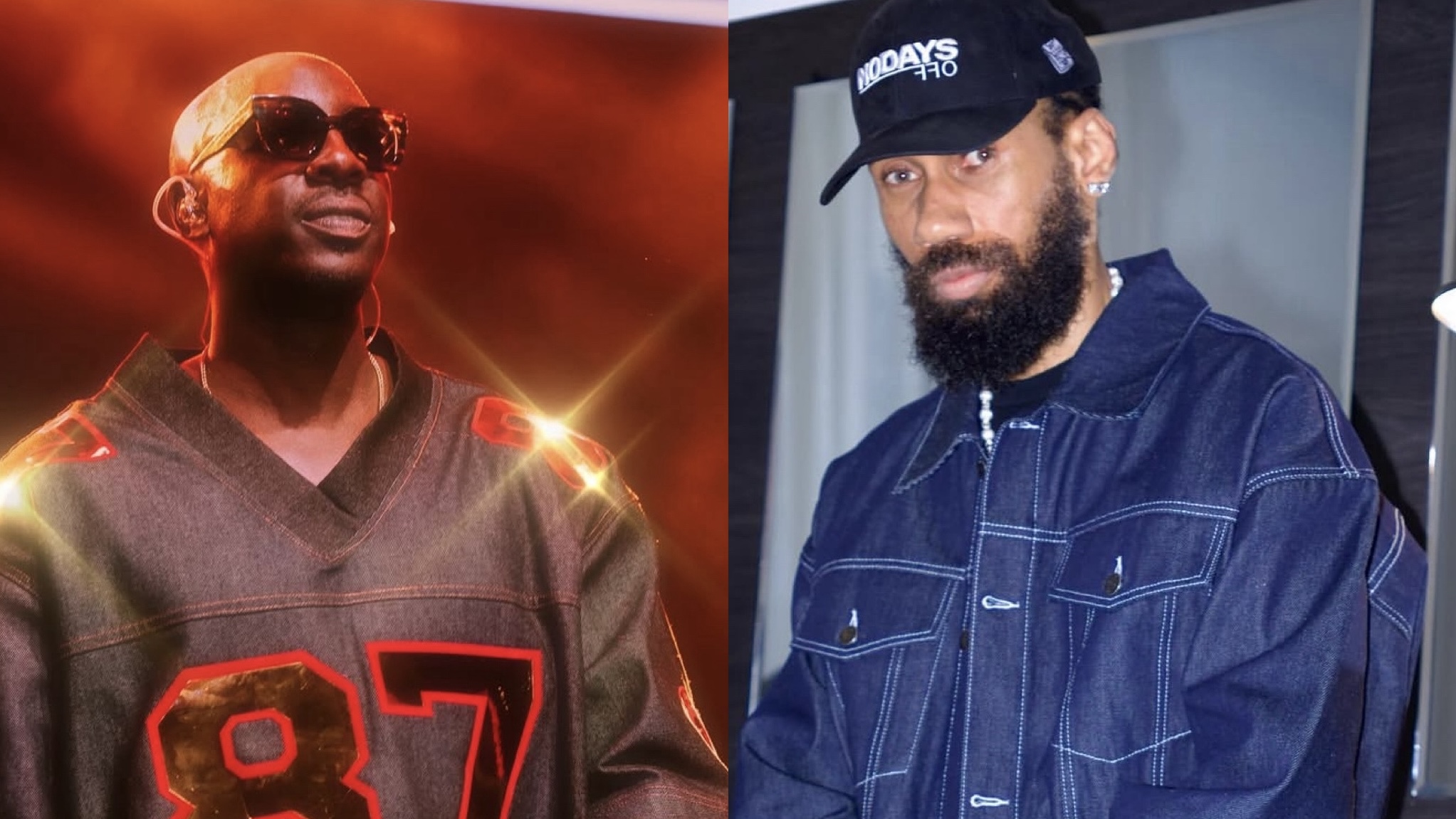The phenomenon of impersonation and online fraud targeting Nigerian entertainers has become an alarming trend, with Nollywood stars regularly finding themselves at the center of elaborate scams. The latest personality to be affected is the prominent actor Bolanle Ninalowo, whose name and public image have reportedly been misused by fraudsters intent on deceiving unsuspecting fans and international victims alike.
This form of digital impersonation is not entirely new in Nigeria’s fast-growing entertainment sector. In a landscape where global reach and social media prominence go hand in hand, celebrities often find their identities weaponized by criminals. According to the Economic and Financial Crimes Commission (EFCC), incidences of such impersonations have sharply increased, resulting in substantial financial loss for victims both locally and abroad.
In 2023, EFCC operatives acting within the Lagos Zonal Command arrested Charles Osaigbovo and Evans Obayaedo, who allegedly posed as a Nigerian actor and producer. The two are accused of orchestrating an online romance scam, using their assumed identities to extract £38,000 under false pretenses, as reported by EFCC records. While the official statement withheld the impersonated celebrity’s name, industry insiders suggest this was not an isolated incident.
The scam wave continued that same year when 23-year-old Kelvin Enofe was detained for impersonating Nollywood actor Ik Ogbonna. Authorities allege Enofe extracted $70,000 from a United States-based woman by exploiting her trust and orchestrating a sophisticated online ruse. Such cases highlight the extensive reach of these criminal networks and the vulnerabilities they exploit in the digital age.
Most recently, allegations have surfaced that actor Bolanle Ninalowo has become the latest victim of identity theft within Nigeria’s entertainment community. Multiple online accounts and profiles have appeared, falsely using his name and image to mislead fans and manipulate unsuspecting individuals into financial transactions.
Ninalowo, who commands a large social media following and has enjoyed significant success in Nollywood, has used his platforms on several occasions to caution the public against believing in fraudulent accounts. He has consistently maintained that only his verified accounts are authentic, warning fans that any other account bearing his likeness or name is a scam operation.
EFCC Petition and the N33 Million Fraud Case
In a recent petition submitted to the EFCC, the legal firm Olamide Oyetayo & Co., representing Mrs. Victoria Yemisi Ayano, detailed fresh allegations of identity theft and fraudulent conduct. The case revolves around a suspect identified as Mr. Bolanle Azeez, who reportedly pretended to be Ninalowo on social media and successfully defrauded Mrs. Ayano of N33 million—a sum that underscores the high stakes involved in such scams.
According to the firm’s petition, the incident began in July 2024 when Ms. Ayano was approached via TikTok by an individual purporting to be Bolanle Ninalowo. The suspect cultivated an online relationship and used various personal and business pretexts to request financial support. Ayano, believing she was aiding the real actor, transferred significant funds in tranches to bank accounts provided by the impersonator. The cumulative total, confirmed by bank receipts and message records, reached N33,000,000 (Thirty-Three Million Naira).
After a period of sustained deception, Ayano reportedly uncovered the scam and confronted the suspect. He neither admitted to wrongdoing nor refunded the money. “He has since cut off communication and remains at large. We have documentary evidence, including WhatsApp messages and bank transfer receipts, which clearly establish the fraudulent schemes orchestrated by Mr. Bolanle Azeez,” reads the petition submitted by Olamide Oyetayo & Co.
Legal experts familiar with such cases note that, under Nigerian Cybercrime (Prohibition, Prevention, etc.) Act of 2015, impersonation and obtaining money by false pretenses are serious offenses, with the EFCC empowered to investigate, arrest, and prosecute perpetrators.
Ninalowo’s Public Reaction: Calling Attention to Scams
Bolanle Ninalowo himself responded to the latest development by posting excerpts of the petition on his official pages, expressing disbelief and commenting on the absurdity of the claimed amount. He noted wryly, “This one loud ooo!! N33,000,000.00 for wetin? Lawyer seff go stee collect hin service fee join! Which kine juju be dis naaa! Haa!! Even the Nollywood wey blow me never pay me N33M per film.”
His sardonic response highlights a broader issue in Nigeria’s entertainment sector, where most actors and producers do not command such high single-film earnings. By drawing attention to the sheer scale of the false claims, Ninalowo aims to warn fans against falling prey to similar schemes.
International Dimensions: Cross-Border Scams and Global Victims
Shortly before news of the local fraud case broke, Ninalowo shared a screenshot of an email sent to him by a woman named Rhonda Wright. In the correspondence, the US-based sender accused him of being a “Scam Master,” alleging that she had been defrauded of $5,000 over two years by someone she believed to be the actor. She further threatened legal action and stated that she would report the matter to authorities in both Nigeria and America.
Wright’s account sheds light on the global repercussions of identity theft originating from Nigeria, as international fans can also be targeted and suffer considerable financial and emotional harm. “I have receipts for every dollar taken, and I have enough pictures, emails, screenshots and checks (cheques), not to mention the bank transactions, turning it all in this morning, to my attorney who specialises in international scams and fraud. King Daddy Nino, oh, I mean Bolanle Ninalowo, your 2+years of romance scamming me is over,” the email reads.
Ninalowo clarified his innocence, stating that after uncovering the scam, the woman did her due diligence and located his real social media account and contact details. Even so, she continued to send threatening messages, apparently not yet convinced of the deception she suffered. “I really hope you and many others who fall victim to these impersonators wake up. Note: if anyone on this God’s own earth is in a current or about to initiate an online relationship with any one of the many supposed me’s, you are being scammed or are about to,” he wrote.
Patterns and Prevention: Why Are Nigerian Celebrities Targets?
Industry analysts point to several reasons why Nigerian actors, especially those with broad international appeal like Ninalowo, are prime targets for impersonation. Social media’s reach, the trust fans have in their idols, and the sometimes opaque verification mechanisms on digital platforms all contribute to this growing threat. Cybersecurity consultant Chinedu Iweala explained, “Celebrity impersonation is attractive to scammers because these public figures are familiar and trusted, making it much easier to lure victims into fake business proposals or romantic traps.”
- High public profile: Nollywood stars have significant followings in Nigeria, Africa, and diaspora communities worldwide.
- Limited public awareness: Many fans remain unaware of the signs of online scams or how to verify official accounts.
- Weak enforcement and prosecution: Even when scammers are identified, gathering enough evidence for prosecution and extradition (when cases cross borders) remains complex.
According to EFCC reports and independent research by Nigerian digital rights groups, the frequency of such cases has increased year-on-year, mirroring trends seen in countries like Ghana and South Africa. The United Nations Office on Drugs and Crime (UNODC) has repeatedly warned about online romance scams, particularly those involving impersonation of public figures, and has called for more robust international cooperation.
Impact on Victims and the Industry
The human and emotional cost of these scams cannot be overstated. Victims, both within Nigeria and among the diaspora, often face deep embarrassment, financial hardship, and trust issues. For entertainers, reputational risk is equally significant. As Lagos-based entertainment lawyer Funke Adeyemi notes, “Even though the celebrities themselves are not involved, repeated cases can damage their brands and affect endorsement deals or opportunities abroad.”
The entertainment industry and security agencies are increasingly cooperating to raise awareness. Tips for avoiding fraudulent imposters commonly shared include:
- Always look for verified social media badges.
- Double-check the authenticity of direct communications from celebrities.
- Never send money or share personal financial details online except through formal, confirmed channels.
- Report suspicious profiles to platform administrators and relevant authorities immediately.
As these cases show, Nigeria’s celebrities are as much victims as those who lose money to scammers. Experts suggest that digital literacy campaigns, stronger platform policies, and coordinated law enforcement actions are urgently needed to stem the tide.
Nigeria’s Role in the Global Context
Nigerian authorities acknowledge the country’s place in the wider international battle against cybercrime. Initiatives like expanded digital forensics, closer cooperation with Interpol, and educational campaigns are part of wider efforts to mitigate both domestic and cross-border scams. The hope, according to industry stakeholders, is that legal reforms and proactive celebrity engagement will one day make impersonation scams a thing of the past.
What steps do you think should be taken by social media platforms, the Nigerian government, and Nollywood itself to better protect entertainers and fans from digital impersonation scams? Have you or someone you know been approached by an impersonator online?
Share your thoughts below and stay tuned for further updates. Your input matters—join the conversation!
Have a story you want to share or sell? We’d love to hear from you! Email us at
story@nowahalazone.com to get your story featured or discuss story sales.
For general support, reach out at support@nowahalazone.com.
Engage with us on social for the latest headlines and Nollywood updates:
Facebook,
X (Twitter), and
Instagram.
Your stories and opinions matter—drop a comment, follow, and let’s keep the conversation alive!









